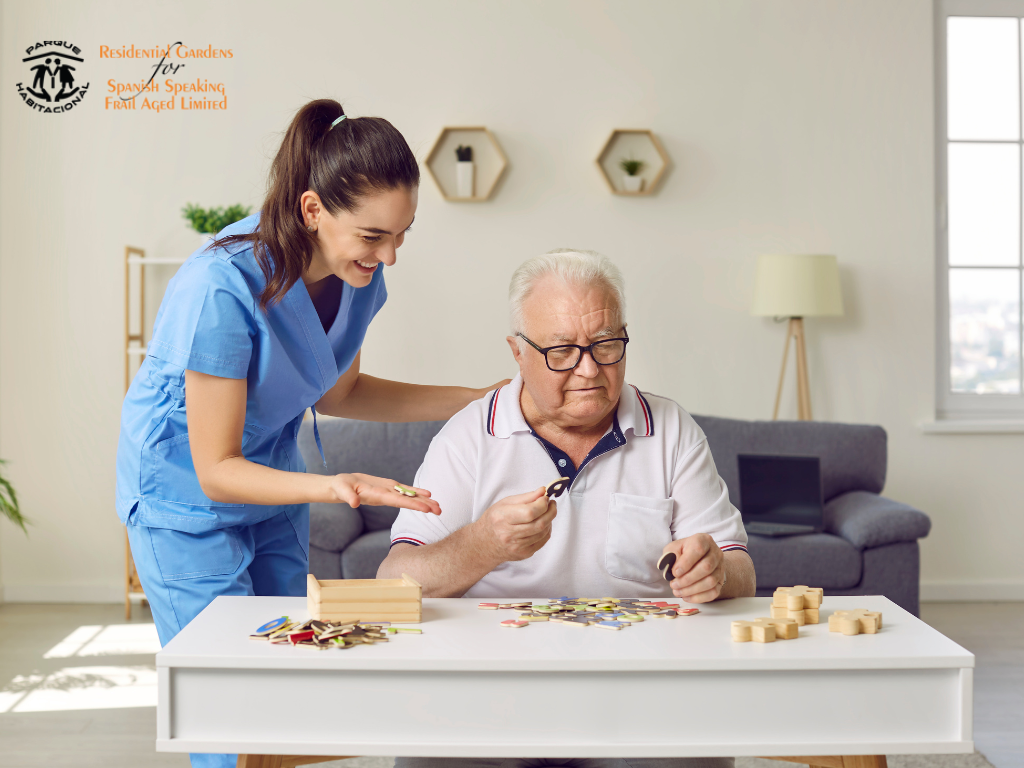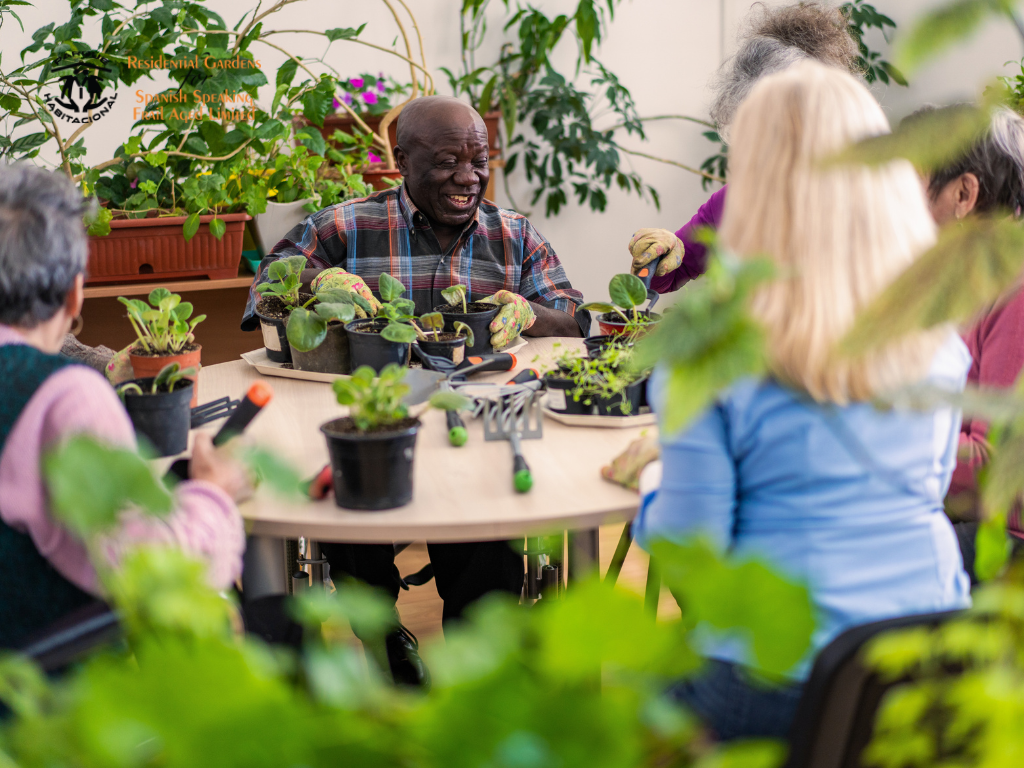In the life of residential aged care, lifestyle and community engagement are pivotal in enriching the residents’ quality of life. These aspects contribute significantly to the physical, emotional, and social well-being of elderly individuals living in residential aged care facilities. A well-rounded approach to community engagement and lifestyle enhancement can greatly influence overall satisfaction and happiness, making the later years more enjoyable and fulfilling. This section explores the importance of these elements in the daily lives of aged care residents.
Assessing Lifestyle Opportunities in Aged Care

What Types of Lifestyle Amenities are Offered by Residential Aged Care Facilities?
Residential aged care facilities typically offer a variety of amenities designed to keep residents engaged, active, and content. Common amenities include:
- Gardens and Outdoor Spaces: Many facilities boast beautifully landscaped gardens where residents can walk, relax, and engage in gardening activities.
- Libraries and Reading Rooms: For those who enjoy reading, facilities often have well-stocked libraries that provide a quiet place for reading and relaxation.
- Exercise Facilities: Tailored exercise programs and equipment suited for the elderly help residents maintain physical health and mobility.
How Do These Amenities Improve Resident Well-being?
Access to diverse amenities plays a crucial role in improving residents’ well-being:
- Physical Health: Regular physical activity facilitated by exercise amenities can help maintain mobility and manage or prevent chronic health issues.
- Mental Health: Gardens and reading rooms offer a peaceful retreat, supporting mental health through relaxation and stimulation.
- Social Interaction: Shared spaces encourage socializing, helping residents build friendships and stay connected with others, which is vital for emotional health.
Recreational Activities Available to Residents
What Recreational Activities are Typically Available in Residential Aged Care Facilities?
A wide range of recreational activities is essential in residential aged care settings to cater to varied interests and abilities:
- Arts and Crafts: Many facilities offer classes like painting, knitting, or pottery, providing creative outlets and the satisfaction of creating something beautiful.
- Music and Dance: Programs might include music therapy sessions, concerts, and dance classes, which not only entertain but also help in emotional expression and physical activity.
- Group Excursions: Organized trips to local attractions, theaters, or community events allow residents to engage with the broader community and experience change in scenery.
How Are Activities Tailored to Meet Diverse Resident Needs?
Activities are carefully planned to ensure inclusivity, allowing every resident to participate regardless of their physical or cognitive abilities:
- Adaptive Equipment: For physical activities, adaptive equipment ensures that even those with limited mobility can join in.
- Skill Levels: Activities are often offered at different skill levels or adapted to meet the capabilities of residents with varying degrees of cognitive and physical abilities.
Promoting Social Interaction Among Residents
How Do Facilities Encourage Social Interaction Among Residents?
Residential aged care facilities employ various strategies to foster a vibrant community environment, where residents feel connected and part of a supportive network:
- Communal Dining: Meals are often served in communal dining areas, encouraging residents to eat together, which naturally promotes regular social interactions and builds community spirit.
- Social Clubs and Interest Groups: Many facilities organize clubs based on different interests such as books, gardening, or chess. These clubs meet regularly, allowing residents to engage in their hobbies and socialize with peers who have similar interests.
- Special Event Days: Facilities frequently host events like holiday celebrations, birthday parties, and cultural days, which provide residents with something to look forward to and enjoy together.
What Role Does Staff Play in Facilitating Social Interactions?
The staff at residential aged care facilities are crucial in promoting and facilitating social interactions among residents:
- Active Facilitation: Care staff are often trained to encourage residents to participate in activities and social events, ensuring that even less outgoing individuals feel included.
- Support for Mobility and Communication: Staff help residents with mobility or communication difficulties to participate in activities and socialize, ensuring everyone has the opportunity to be involved.
- Creating a Friendly Environment: By fostering a warm and welcoming atmosphere, staff help new residents integrate into the community, easing transitions and promoting early engagement.
Technology’s Role in Enhancing Community Engagement
What Technological Innovations are Being Used to Enhance Social Connectivity?
Technology plays an increasingly significant role in enhancing social connectivity within residential aged care facilities:
- Virtual Reality (VR) Experiences: Some facilities use VR to give residents experiences outside their immediate surroundings, such as virtual travel to distant places or attendance at events.
- Social Media and Online Communities: Facilities may create private social media groups or online community boards where residents can interact, share photos, and stay updated on facility news and events.
- Video Calling Technology: With the advent of easy-to-use video calling platforms, residents can maintain close contact with family and friends who are unable to visit in person, helping to bridge the gap caused by distance.
How Effective are These Technologies in Improving Resident Engagement?
The effectiveness of these technologies in improving engagement is significant:
- Increased Interaction: Technology, especially social media and video calling, helps residents maintain relationships and continue interactions that would otherwise be limited due to mobility or health issues.
- Enhanced Mental Stimulation: Virtual reality and interactive technologies provide mental stimulation and can be especially beneficial for residents with physical limitations or those requiring dementia care.
- Adaptability: Technology adapts to the needs of residents, offering various levels of interaction that can be tailored to individual preferences and abilities, making it an invaluable tool for enhancing engagement.
Conclusion
In residential aged care facilities, the emphasis on lifestyle and community engagement is crucial for the well-being of residents. By facilitating regular social interactions and utilizing modern technology, these facilities not only enhance the quality of life for their residents but also ensure a vibrant, engaging community. As technology continues to evolve, its integration into residential aged care settings promises even greater enhancements in how residents connect, share, and enjoy life, reinforcing the importance of these elements in delivering comprehensive aged care services.



